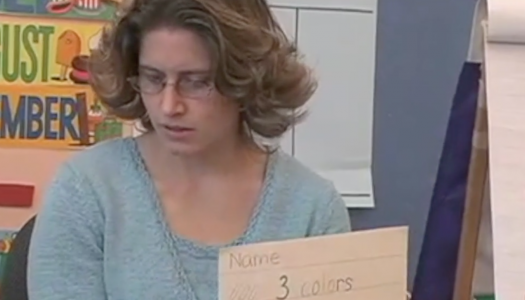A Strategy to Support Students Who Struggle with Getting Ideas Down
Join Our Community
Access this resource now. Get up to three resources every month for free.
Choose from thousands of articles, lessons, guides, videos, and printables.

A frustrated kindergarten teacher approached me to chat about a reluctant writer whom she just could not get to write. Every trick and tactic that had worked before in her thirty-four years of teaching had fallen flat with this particularly perplexing student who has ability and ideas but wouldn't transfer them to paper.
A strategy that we support barometer behaviors during Read to Self came to mind, and I wondered if we could modify it to motivate our little struggler. We decided to try it the next day.
I joined the class during their writing workshop time and hunkered next to him. Everyone else was writing, but he was just sitting there. "Nathan [not his real name], your teacher tells me that it's sometimes hard for you to get going in writing. Do you agree?" He nodded yes. "She also said you have good ideas, but that you have a hard time making yourself write them down." Another nod.
"Well, I have a game for you that is not only going to be a lot of fun, but is going to help you grow as a writer."
"Game? I like games. Sometimes I win and sometimes I lose."
"Well, you are going to love this game, and you might be able to win every single time! Here is how you play. Think about what you want to write on your first page. As soon as you have your idea, turn this sand timer over and start writing. If you can get your idea on the page before the sand runs out, you win!"
His grin was huge, and the challenge was accepted. He turned over the one-minute timer and wrote an entire sentence before the sand ran out. After a high-five and hearty congratulations on winning the game, I asked him to tell me what he was going to put on the second page. He shared his idea, turned the timer over, and got another sentence down before the sand ran out. He was still happily turning and writing, turning and writing when I left.
It worked like magic. For two days.
Upon my next visit, I discovered that Nathan was writing his first sentence, then spending five to fifteen minutes staring into space instead of getting his next one down. My feelings of desperation led me to invent a new game level.
"Nathan, you totally rocked the game last time I was here. So you are ready for level two! As soon as you get your first idea down, turn the timer over again. You can think only until the sand runs out, and then you have to have your idea ready to go. If you are ready to write when the sand runs out, you win again. This is so exciting, I can't wait to see what happens!"
His teacher and I are thankful for the improved motivation. Perhaps as Nathan continues to write, he will no longer feel a need for the "game," but for now, it is doing the trick.






